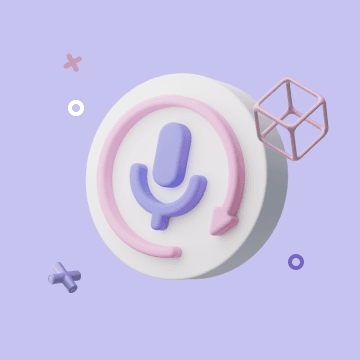
AI 代理如何自动化您的品牌营销工作
AI 代理如何赋能现代品牌营销
AI 代理正在重塑品牌从概念到发布的方式。这些智能助手可以帮助您设计标志、创建口号、撰写促销文案,甚至规划整个品牌策略——所有这些都仅用过去所需时间的一小部分。
像 Bika.ai 这样的工具展示了 AI 代理如何作为您的创意伙伴,分析您的品牌个性,并在每个渠道生成一致且高质量的内容。
初创企业和营销人员现在可以使用一个或多个 AI 代理来处理创意设计、信息传递和活动规划,而无需雇佣多个专家——这使得在线上构建一个连贯且专业的品牌形象变得更加容易。
营销中的 AI 代理究竟是什么?
AI 代理是自主数字助理,旨在解读数据、做出战略决策,并在最少人工监督下执行营销任务。与静态工具不同,AI 代理会不断从反馈和性能指标中学习,适应不断变化的客户行为。
可以将它们视为专门的营销协作者,能够:
- 分析客户情感和行为模式
- 生成个性化的活动文案和视觉内容
- 预测未来的参与趋势
- 执行和优化实时营销活动
从技术角度讲,营销 AI 代理有三大层——输入、大脑和行动:
- 输入: 收集来自社交媒体、客户互动和分析工具的多样化数据。
- 大脑: 使用记忆、推理和规划模块处理这些数据。
- 行动: 自动执行活动、调整内容并提供优化结果。
这种架构使 AI 代理能够管理从实时广告定位到大规模 A/B 测试的所有事务。
AI 代理如何自动化和优化营销工作流程

当我第一次将 AI 代理整合到营销工作流程中,最大的一点启发是它们消除了重复性工作,让我有更多时间用于创意和策略。以下是实践中的具体表现:
1. 数据收集与分析
不再需要手动跟踪活动指标,我的 AI 代理现在从多个渠道拉取表现数据,并识别出驱动参与度的因素。例如,一次活动分析显示短视频的点击率比静态图片高出2.3 倍——这一发现彻底改变了我的整个广告策略。
2. 受众细分与定位
AI 代理根据参与模式和人口统计自动细分受众。在最近一次产品发布中,代理识别出了三个高度活跃的微型细分群体,帮助我个性化内容,提升了34%的转化率。
3. 预测分析
通过预测建模,AI 代理预测客户流失、生命周期价值和季节性需求。以我为例,这帮助我预判用户参与度何时下降,从而提前发起保留活动。
4. 自动化内容创作
借助 NLP 支持的代理,我能够在几分钟内生成登陆页标题、广告文案和个性化邮件序列。过去需要整个下午的工作现在不到 15 分钟完成,且不影响语调或品牌一致性。
5. 活动优化与 A/B 测试
AI 代理持续监控活动数据,自动调整广告位置和创意。我代理进行的一次 A/B 测试仅通过更改 CTA 语句和颜色对比,就带来了18%更高的投资回报率。
AI 代理在品牌营销中的实用案例
经过一年在不同营销活动中使用 AI 代理,以下是我亲眼见证的最有效的用例:
- 绩效跟踪: AI 代理提供实时仪表盘,展示从点击率到转化率的关键指标,无需手动设置。
- 活动调度: 我的 AI 系统在高峰参与时间安排社交和电子邮件活动,提升了27%的曝光率。
- 市场调研: 通过扫描行业数据和竞争对手策略,AI 代理帮助我发现了细分内容策略中的空白点。
- 内容编辑: 我现在依赖 AI 驱动的编辑代理,审查品牌材料中的语气、清晰度和风格一致性。
- 广告创作与优化: 代理自动测试视觉效果、受众组合和广告投放位置,找出表现最佳的配置。
- 潜在客户评分与 CRM 集成: 通过预测分析,代理根据转化概率对潜在客户进行排名,大幅提升销售外展效率。
这些经验证明,AI 代理不仅是“工具”,它们更像是协作的营销团队成员,不断学习和进化。
人类 + AI 代理协作模式
一个常见误解是 AI 代理会取代营销团队。我的经验恰恰相反。正确使用时,AI 代理增强人类创造力,而不是取代。
营销人员仍然提供方向、同理心和讲故事能力——这些是 AI 无法复制的。代理则承担执行、优化和数据密集型分析,释放营销人员专注于愿景、信息和关系。
我发现最有效的模式是混合方法,AI 处理 70% 的重复工作,人类处理 30% 的高层决策。结果是更快的执行、更强的一致性和更好的活动效果。
AI 代理在品牌营销中的未来
我们正迈向一个代理营销生态系统的时代,多个 AI 代理协作——每个专注于不同职能(内容、分析、策略或视觉设计)。这些代理可以共享数据、协调时间,甚至提出联合建议。
在不久的将来,单一 AI 代理可能管理您的全营销周期——从概念构想到发布后优化。早期采用者报告称,得益于自主代理系统,活动成本下降高达 40%,上市时间加快了50%。
最后的思考
整合 AI 代理后,我最大的收获是:它们不仅仅是自动化——它们放大了。它们将猜测变成精准,将混乱变成清晰,将想法变成可扩展、可衡量的成果。
如果您准备好将这种效率带入您的工作流程,请从小处开始——尝试使用 AI 代理进行内容创作或分析,并随着对系统信任度的增加逐步扩大规模。结果可能会像我一样让您惊喜。
如果您正在寻找入门平台,类似 Bika.ai 的工具让您轻松探索 AI 品牌代理的功能——从设计活动到自主执行。

推荐阅读
- Sales AI Workflow Automation: A Practical Guide From Lead to Close
- 5 Best CRM Workflow Automation Tools in 2026
- 5 Best Workflow Automation Software For Small Business In 2026
- AI Automation Benefits: Cut Costs, Save Time, and Scale Faster in 2026
- A Complete Guide to Workflow Automation for Small Businesses
推荐AI自动化模板

Coming soon
